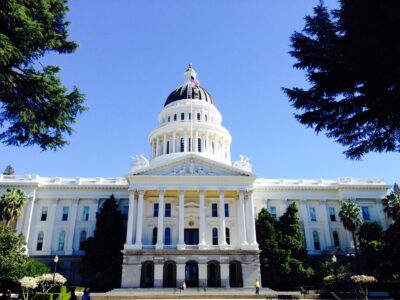housing
The perils of federal abundance legislation
Political polarization at the federal level is a steep obstacle to any major abundance reforms
I recently wrote an assessment of the ROAD Act, a bill in the US Senate that would do some (mild) changes to NEPA and develop some guidelines and incentives for state and local governments to amend their zoning to facilitate more housing production. While the ROAD Act may be fine policy, one question is whether …
Continue reading “The perils of federal abundance legislation”
CONTINUE READINGThe ROAD to housing?
Initial federal legislation advancing more housing is limited in scope.
There’s been a lot of legislative action advancing housing production through reforms to land-use and environmental regulations at the state level, including California. Now, the federal government is every so gingerly stepping into the area. The ROAD Act passed unanimously through the relevant Senate committee last month. In this blog post I’ll provide a brief …
Continue reading “The ROAD to housing?”
CONTINUE READINGClean up on aisle 131
Legislature should fix flaws in AB 131
As this year’s legislative session comes to a close, I want to highlight legislative action that I hope happens in the next session. I noted earlier that AB 130 and AB 131 both were important steps to advance infill housing in California by creating exemptions for infill housing from the California Environmental Quality Act (CEQA). …
Continue reading “Clean up on aisle 131”
CONTINUE READINGThoughts on AB 131
Overall a good bill, but the definition of natural and protected lands is inadequate
Governor Newsom is pushing for CEQA reform as part of approval of the state budget, and the result is two budget trailer bills, AB 130 and AB 131, that together provide some of the most significant changes to CEQA in many years. Overall, these are good bills. The changes are focused on facilitating development where …
Continue reading “Thoughts on AB 131”
CONTINUE READINGCEQA and infill development
SB 607 is an excellent beginning for reforming CEQA to facilitate residential infill development
The state legislature continues its efforts to facilitate more housing production in California. Among the most significant bills being considered this session in Sacramento is SB 607, which would provide some substantial changes to how environmental review under the California Environmental Quality Act (CEQA) would operate. Overall, this is a bill that would provide important …
Continue reading “CEQA and infill development”
CONTINUE READINGLittle Hoover Commission Releases Flawed CEQA Report
The long-awaited report proposes sweeping exemptions and process changes—even though its own reasoning points in the opposite direction.
More than a year ago, California’s Little Hoover Commission convened the first in a series of public hearings designed to interrogate the California Environmental Quality Act (CEQA) as well as Californians’ often tense relationship with that landmark legislation. In recent years, some pro-housing advocates have pointed to CEQA as the bogeyman driving the state’s affordable …
Continue reading “Little Hoover Commission Releases Flawed CEQA Report”
CONTINUE READINGMaking Building Decarbonization Work for LA Renters
A new UCLA report recommends policies to green existing buildings in a way that protects and supports residential tenants.
Los Angeles’ ambitious “Green New Deal” calls for, among other things, eliminating or offsetting building emissions and reducing building energy use by 44%, both by 2050. This is an impressive and ambitious target, and while the city has begun restricting some emissions from new buildings, it is still figuring out how to tackle the far …
Continue reading “Making Building Decarbonization Work for LA Renters”
CONTINUE READINGCEQA, California’s Housing Crisis & the Little Hoover Commission
State Watchdog Agency’s Scheduled CEQA Hearings Could Prompt Major Changes to California’s Most Important Environmental Law
Beginning today, California’s “Little Hoover Commission” will convene a series of three public hearings to consider how well–or poorly–the state’s California Environmental Quality Act (CEQA) is currently working. A special focus of the Commission’s deliberations will be whether and to what extent California’s most important and overarching environmental law is impeding efforts by the Legislature …
Continue reading “CEQA, California’s Housing Crisis & the Little Hoover Commission”
CONTINUE READINGBalancing fire risk and housing
How can California reconcile the dual needs of managing for fire risk and producing more housing?
This is the last in a series of four blog posts discussing the issue of development in the wildland-urban interface in California, the current legal structures addressing the issue, and our research on how those legal frameworks are being applied on the ground in key counties in the state. In this blog post, we’ll discuss …
Continue reading “Balancing fire risk and housing”
CONTINUE READINGWhat is being built in the WUI?
What our data says about development in the WUI in California
This is the third in a series of four blog posts discussing the issue of development in the wildland-urban interface in California, the current legal structures addressing the issue, and our research on how those legal frameworks are being applied on the ground in key counties in the state. In this blog post, we summarize …
Continue reading “What is being built in the WUI?”
CONTINUE READING






